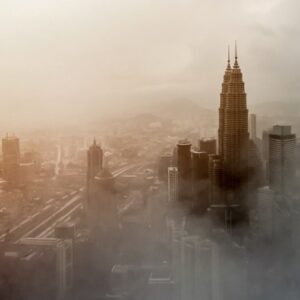welcome to the SUHAKAM PROJECT
On 7 Dec 2021, CERAH and its coalition of Anti-Haze partners took a historic step by submitting a complaint to the Malaysian Human Rights Commission (SUHAKAM) to address the persistent and chronic haze pollution that has been plaguing Malaysia for decades. This toxic haze has been violating the fundamental human right of Malaysians to access clean air, causing significant harm to their health and well-being. The filing of this complaint was made possible through the joint efforts of our dedicated coalition members and partners who have worked tirelessly to address this issue. We want to express our heartfelt gratitude to the Malaysian public, as this right to clean air belongs to all of you. Our coalition remains committed to fighting for your rights and ensuring that your voices are heard in the pursuit of a healthier and safer environment for all.
Our Complaint
The Department of Environment in Malaysia receives a lot of complaints about air pollution. This is the most common type of environmental pollution complaint, making up over 81% of all complaints in 2019. The air quality in Malaysia is not good and often doesn’t meet the standards set by the World Health Organisation. One big problem is haze pollution, which is mostly caused by people and comes from both within the country and outside of it.
The current legal framework is inadequate to protect environmental rights and address the haze pollution problem. The authors respectfully request that SUHAKAM examine existing legislation and regulations to advise and make recommendations on how to protect people’s human rights to a safe, clean, and healthy environment. A rights-based approach for a sustainable and resilient recovery from the pandemic is necessary to avoid negative consequences on human lives, quality of life, and the ecosystem.
gaps in legal framework
The causes and effects of air pollution, including domestic and transboundary haze pollution, outlined above reveal fundamental gaps in our local and regional legal frameworks for protecting and respecting people’s human rights to a safe, clean, healthy and sustainable environment.
These gaps must be considered in the context of the deeply embedded patronage systems that dominate
our institutional frameworks, market structures, business culture and public consciousness. Hence, the critical components for overcoming these gaps, which we will mention below, should be applied intentionally to democratise legal accountability so that we strengthen the rule of law and the protection of and respect for human rights by the Government of Malaysia and private sector actors respectively.

Basic Gaps in Environmental Rights, Access to Information and Public
Participation
Environmental governance in Malaysia is lacking public participation and transparency, with minimal access to information and limited reference to environmental rights in the constitution. The current laws and regulations are in need of reform to address the ecological crisis, and there is a lack of legal basis for important environmental principles such as the Polluter Pays Principle and the Precautionary Principle. The only available remedy for environmental harm is government prosecution of polluters, which is an incomplete form of accountability and governance.
Gaps in Governance of Transboundary Haze Pollution
The ASEAN Agreement on Transboundary Haze Pollution of 2002 is a legally binding regional agreement aimed at facilitating regional cooperation in responding to forest and land fires that cause transboundary haze pollution. However, this agreement does not provide direct legal assistance to private persons in Malaysia who wish to seek redress for the pollution. The Malaysian government had previously announced plans to enact domestic legislation to empower them to take action against Malaysian businesses causing transboundary haze pollution. Still, the new government shelved the plans, causing disappointment from the public and civil society.
Recommendations We Seek
Click here to access the full complaint and recommendations report, where you can learn about the findings and recommendations of the project. Stay informed and take action towards a cleaner and healthier environment for all.
haze stories
Haze pollution affects everyone whether in small or big ways. Whether it’s not being able to do outdoor sports or exacerbating a pre-existing respiratory lung condition. We want to hear your story on how you’ve been affected by haze pollution and what you think should be done about it!




















